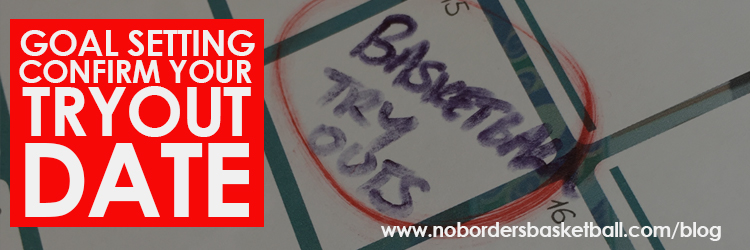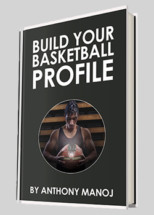Goal Setting 101 – Confirming your tryout date
If you don’t have a tryout date or an approximate time how are you going to get ready? It’s like shooting without a target. How do you know where to aim?
By confirming a tryout date you are able to start your preparation and start planning the structure of your training. You really don’t want to be training at 100% work effort a couple of days before a tryout. That’s s insane! You’ll be burnt out and your performance will suffer. Similarly you don’t want to be focusing on your lifts in the gym a week before your trial. You want to be focusing on agility and on court work.
Having a tryout date, a confirmed date! Will enable to build a calendar for your training so every day and every week you know what you have to do. This takes the guess work out of your training and ensures you are on the path to getting the optimum out of yourself come tryouts.
My experience
In 2010 after my knee operation I really didn’t have a team to go to as my position on the Guildford Heat team was in question due to my injury. I had been with the Guildford Heat and Eltham Admirals and I wanted to go back and play for them and see the rest of the season out. Mind you I have just had knee surgery and was told I couldn’t walk for a month. Within two weeks of the operation I was starting to walk. I began an aggressive rehab campaign and I was certain that in the 4 months I had, I would be game fit and ready to play the remaining games.
The first thing I did to get back to getting match fit was work out the date that I was going to be back in Europe. From there I planned backwards. Yes, that’s a little strange right? But, when you have the end date or goal in mind it is easier to plan all your micro goals.
I visualised the type of player and shape I wanted to be in. I wanted to be a floor general and be able to have amazing handles, be a good defender with lightning quickness and bury the open shot with consistency.
So lets break that down by statements.
“I wanted to be a floor general and be able to have amazing handles”
What I need to do in a training perspective:
- ball handling work
- passing work
- creative counter dribbling work (this is where you go through scenarios with defensive pressure on the ball such as full court presses)
“be a good defender with lightning quickness”
What I need to do in a training perspective:
- work on defensive agility and physically take hits (work on off screen)
- agility work
- ploys
“bury the open shot with consistency”
What I need to do in a training perspective:
- shooting drills
- scenario shooting (go through possible scenarios of spots I’d shoot from the floor in a game)
From here I was able to break down my training. Concentrate on 1 or two drills a week and work on repetition. Doing multiple drills for a brief time isn’t going to help you much it’s the reps that’ll build what you practice into instinct.
Schedule in your training sessions between 1 and 2 hours. Make sure these sessions are at game pace. Some advice I was given when I was young that I didn’t take was train hard for a short time and rest the remainder of the day. Its better to do that than train for 6 hours straight at half pace. When I was growing up I was constantly tired for my games (due to over training). It was only later in my basketball career I understood the importance of working hard at a short period of time and resting the rest. Not only did my body feel refreshed, mentally I was more competitive especially on the defensive end.
This is a great Segway to the next article Planning Rest & Recovery Time. Another article that I wrote that is very relevant for this discussion is Are You Overtraining? The article lists symptoms that can help you identify if you are overtraining.
Thanks for taking the time to read this article and I really hope it helps you. For more articles don’t forget to subscribe to the No Borders Basketball newsletters.
Finally, I want to ask. Has anyone out there have an upcoming basketball tryout? Please use the comment section below to let me know.

